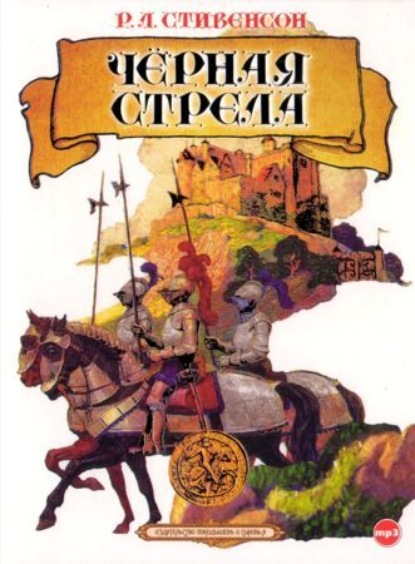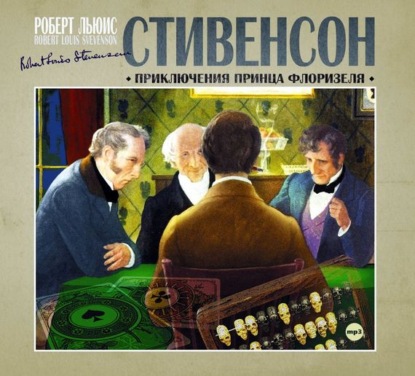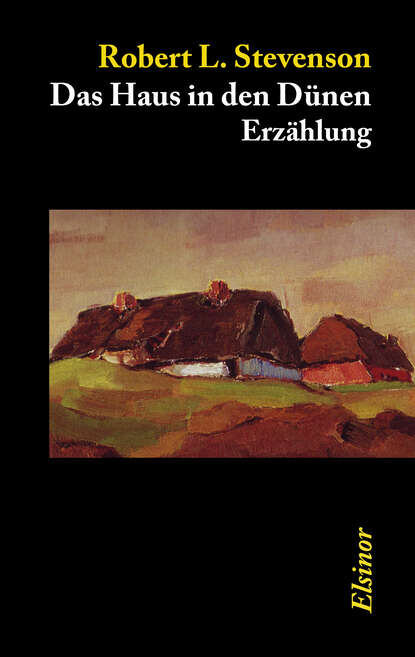Роберт Льюис Стивенсон Ballads
 Полная версия
Полная версияПолная версия:
Роберт Льюис Стивенсон Ballads
- + Увеличить шрифт
- - Уменьшить шрифт

Robert Louis Stevenson
Ballads
THE SONG OF RAHÉRO
A LEGEND OF TAHITI
TO ORI A ORI
Ori, my brother in the island mode,In every tongue and meaning much my friend,This story of your country and your clan,In your loved house, your too much honoured guest,I made in English. Take it, being done;And let me sign it with the name you gave.Teriitera.I. THE SLAYING OF TÁMATÉA
It fell in the days of old, as the men of Taiárapu tell,A youth went forth to the fishing, and fortune favoured him well.Támatéa his name: gullible, simple, and kind,Comely of countenance, nimble of body, empty of mind,His mother ruled him and loved him beyond the wont of a wife,Serving the lad for eyes and living herself in his life.Alone from the sea and the fishing came Támatéa the fair,Urging his boat to the beach, and the mother awaited him there,– “Long may you live!” said she. “Your fishing has sped to a wish.And now let us choose for the king the fairest of all your fish.For fear inhabits the palace and grudging grows in the land,Marked is the sluggardly foot and marked the niggardly hand,The hours and the miles are counted, the tributes numbered and weighed,And woe to him that comes short, and woe to him that delayed!”So spoke on the beach the mother, and counselled the wiser thing.For Rahéro stirred in the country and secretly mined the king.Nor were the signals wanting of how the leaven wrought,In the cords of obedience loosed and the tributes grudgingly brought.And when last to the temple of Oro the boat with the victim sped,And the priest uncovered the basket and looked on the face of the dead,Trembling fell upon all at sight of an ominous thing,For there was the aito 1 dead, and he of the house of the king.So spake on the beach the mother, matter worthy of note,And wattled a basket well, and chose a fish from the boat;And Támatéa the pliable shouldered the basket and went,And travelled, and sang as he travelled, a lad that was well content.Still the way of his going was round by the roaring coast,Where the ring of the reef is broke and the trades run riot the most.On his left, with smoke as of battle, the billows battered the land;Unscalable, turreted mountains rose on the inner hand.And cape, and village, and river, and vale, and mountain above,Each had a name in the land for men to remember and love;And never the name of a place, but lo! a song in its praise:Ancient and unforgotten, songs of the earlier days,That the elders taught to the young, and at night, in the full of the moon,Garlanded boys and maidens sang together in tune.Támatéa the placable went with a lingering foot;He sang as loud as a bird, he whistled hoarse as a flute;He broiled in the sun, he breathed in the grateful shadow of trees,In the icy stream of the rivers he waded over the knees;And still in his empty mind crowded, a thousand-fold,The deeds of the strong and the songs of the cunning heroes of old.And now was he come to a place Taiárapu honoured the most,Where a silent valley of woods debouched on the noisy coast,Spewing a level river. There was a haunt of Pai. 2There, in his potent youth, when his parents drove him to die,Honoura lived like a beast, lacking the lamp and the fire,Washed by the rains of the trade and clotting his hair in the mire;And there, so mighty his hands, he bent the tree to his foot —So keen the spur of his hunger, he plucked it naked of fruit.There, as she pondered the clouds for the shadow of coming ills,Ahupu, the woman of song, walked on high on the hills.Of these was Rahéro sprung, a man of a godly race;And inherited cunning of spirit and beauty of body and face.Of yore in his youth, as an aito, Rahéro wandered the land,Delighting maids with his tongue, smiting men with his hand.Famous he was in his youth; but before the midst of his lifePaused, and fashioned a song of farewell to glory and strife. House of mine (it went), house upon the sea, Belov’d of all my fathers, more belov’d by me! Vale of the strong Honoura, deep ravine of Pai, Again in your woody summits I hear the trade-wind cry. House of mine, in your walls, strong sounds the sea, Of all sounds on earth, dearest sound to me. I have heard the applause of men, I have heard it arise and die: Sweeter now in my house I hear the trade-wind cry.These were the words of his singing, other the thought of his heart;For secret desire of glory vexed him, dwelling apart.Lazy and crafty he was, and loved to lie in the sun,And loved the cackle of talk and the true word uttered in fun;Lazy he was, his roof was ragged, his table was lean,And the fish swam safe in his sea, and he gathered the near and the green.He sat in his house and laughed, but he loathed the king of the land,And he uttered the grudging word under the covering hand.Treason spread from his door; and he looked for a day to come,A day of the crowding people, a day of the summoning drum,When the vote should be taken, the king be driven forth in disgrace,And Rahéro, the laughing and lazy, sit and rule in his place,Here Támatéa came, and beheld the house on the brook;And Rahéro was there by the way and covered an oven to cook. 3Naked he was to the loins, but the tattoo covered the lack,And the sun and the shadow of palms dappled his muscular back.Swiftly he lifted his head at the fall of the coming feet,And the water sprang in his mouth with a sudden desire of meat;For he marked the basket carried, covered from flies and the sun; 4And Rahéro buried his fire, but the meat in his house was done.Forth he stepped; and took, and delayed the boy, by the hand;And vaunted the joys of meat and the ancient ways of the land:– “Our sires of old in Taiárapu, they that created the race,Ate ever with eager hand, nor regarded season or place,Ate in the boat at the oar, on the way afoot; and at nightArose in the midst of dreams to rummage the house for a bite.It is good for the youth in his turn to follow the way of the sire;And behold how fitting the time! for here do I cover my fire.”– “I see the fire for the cooking but never the meat to cook,”Said Támatéa. – “Tut!” said Rahéro. “Here in the brookAnd there in the tumbling sea, the fishes are thick as flies,Hungry like healthy men, and like pigs for savour and size:Crayfish crowding the river, sea-fish thronging the sea.”– “Well it may be,” says the other, “and yet be nothing to me.Fain would I eat, but alas! I have needful matter in hand,Since I carry my tribute of fish to the jealous king of the land.”Now at the word a light sprang in Rahéro’s eyes.“I will gain me a dinner,” thought he, “and lend the king a surprise.”And he took the lad by the arm, as they stood by the side of the track,And smiled, and rallied, and flattered, and pushed him forward and back.It was “You that sing like a bird, I never have heard you sing,”And “The lads when I was a lad were none so feared of a king.And of what account is an hour, when the heart is empty of guile?But come, and sit in the house and laugh with the women awhile;And I will but drop my hook, and behold! the dinner made.”So Támatéa the pliable hung up his fish in the shadeOn a tree by the side of the way; and Rahéro carried him in,Smiling as smiles the fowler when flutters the bird to the gin,And chose him a shining hook, 5 and viewed it with sedulous eye,And breathed and burnished it well on the brawn of his naked thigh,And set a mat for the gull, and bade him be merry and bide,Like a man concerned for his guest, and the fishing, and nothing beside.Now when Rahéro was forth, he paused and hearkened, and heardThe gull jest in the house and the women laugh at his word;And stealthily crossed to the side of the way, to the shady placeWhere the basket hung on a mango; and craft transfigured his face.Deftly he opened the basket, and took of the fat of the fish,The cut of kings and chieftains, enough for a goodly dish.This he wrapped in a leaf, set on the fire to cookAnd buried; and next the marred remains of the tribute he took,And doubled and packed them well, and covered the basket close– “There is a buffet, my king,” quoth he, “and a nauseous dose!” —And hung the basket again in the shade, in a cloud of flies– “And there is a sauce to your dinner, king of the crafty eyes!”Soon as the oven was open, the fish smelt excellent good.In the shade, by the house of Rahéro, down they sat to their food,And cleared the leaves 6 in silence, or uttered a jest and laughed,And raising the cocoanut bowls, buried their faces and quaffed.But chiefly in silence they ate; and soon as the meal was done,Rahéro feigned to remember and measured the hour by the sun,And “Támatéa,” quoth he, “it is time to be jogging, my lad.”So Támatéa arose, doing ever the thing he was bade,And carelessly shouldered the basket, and kindly saluted his host;And again the way of his going was round by the roaring coast.Long he went; and at length was aware of a pleasant green,And the stems and shadows of palms, and roofs of lodges betweenThere sate, in the door of his palace, the king on a kingly seat,And aitos stood armed around, and the yottowas 7 sat at his feet.But fear was a worm in his heart: fear darted his eyes;And he probed men’s faces for treasons and pondered their speech for lies.To him came Támatéa, the basket slung in his hand,And paid him the due obeisance standing as vassals stand.In silence hearkened the king, and closed the eyes in his face,Harbouring odious thoughts and the baseless fears of the base;In silence accepted the gift and sent the giver away.So Támatéa departed, turning his back on the day.And lo! as the king sat brooding, a rumour rose in the crowd;The yottowas nudged and whispered, the commons murmured aloud;Tittering fell upon all at sight of the impudent thing,At the sight of a gift unroyal flung in the face of a king.And the face of the king turned white and red with anger and shameIn their midst; and the heart in his body was water and then was flame;Till of a sudden, turning, he gripped an aito hard,A youth that stood with his ómare, 8 one of the daily guard,And spat in his ear a command, and pointed and uttered a name,And hid in the shade of the house his impotent anger and shame.Now Támatéa the fool was far on the homeward way,The rising night in his face, behind him the dying day.Rahéro saw him go by, and the heart of Rahéro was glad,Devising shame to the king and nowise harm to the lad;And all that dwelt by the way saw and saluted him well,For he had the face of a friend and the news of the town to tell;And pleased with the notice of folk, and pleased that his journey was done,Támatéa drew homeward, turning his back to the sun.And now was the hour of the bath in Taiárapu: far and nearThe lovely laughter of bathers rose and delighted his ear.Night massed in the valleys; the sun on the mountain coastStruck, end-long; and above the clouds embattled their host,And glowed and gloomed on the heights; and the heads of the palms were gems,And far to the rising eve extended the shade of their stems;And the shadow of Támatéa hovered already at home.And sudden the sound of one coming and running light as the foamStruck on his ear; and he turned, and lo! a man on his track,Girded and armed with an ómare, following hard at his back.At a bound the man was upon him; – and, or ever a word was said,The loaded end of the ómare fell and laid him dead.II. THE VENGING OF TÁMATÉA
Thus was Rahéro’s treason; thus and no further it spedThe king sat safe in his place and a kindly fool was dead.But the mother of Támatéa arose with death in her eyes.All night long, and the next, Taiárapu rang with her cries.As when a babe in the wood turns with a chill of doubtAnd perceives nor home, nor friends, for the trees have closed her about,The mountain rings and her breast is torn with the voice of despair:So the lion-like woman idly wearied the airFor awhile, and pierced men’s hearing in vain, and wounded their hearts.But as when the weather changes at sea, in dangerous parts,And sudden the hurricane wrack unrolls up the front of the sky,At once the ship lies idle, the sails hang silent on high,The breath of the wind that blew is blown out like the flame of a lamp,And the silent armies of death draw near with inaudible tramp:So sudden, the voice of her weeping ceased; in silence she roseAnd passed from the house of her sorrow, a woman clothed with repose,Carrying death in her breast and sharpening death with her hand.Hither she went and thither in all the coasts of the land.They tell that she feared not to slumber alone, in the dead of night,In accursed places; beheld, unblenched, the ribbon of light 9Spin from temple to temple; guided the perilous skiff,Abhorred not the paths of the mountain and trod the verge of the cliff;From end to end of the island, thought not the distance long,But forth from king to king carried the tale of her wrong.To king after king, as they sat in the palace door, she came,Claiming kinship, declaiming verses, naming her nameAnd the names of all of her fathers; and still, with a heart on the rack,Jested to capture a hearing and laughed when they jested back:So would deceive them awhile, and change and return in a breath,And on all the men of Vaiau imprecate instant death;And tempt her kings – for Vaiau was a rich and prosperous land,And flatter – for who would attempt it but warriors mighty of hand?And change in a breath again and rise in a strain of song,Invoking the beaten drums, beholding the fall of the strong,Calling the fowls of the air to come and feast on the dead.And they held the chin in silence, and heard her, and shook the head;For they knew the men of Taiárapu famous in battle and feast,Marvellous eaters and smiters: the men of Vaiau not least.To the land of the Námunu-úra, 10 to Paea, at length she came,To men who were foes to the Tevas and hated their race and name.There was she well received, and spoke with Hiopa the king. 11And Hiopa listened, and weighed, and wisely considered the thing.“Here in the back of the isle we dwell in a sheltered place,”Quoth he to the woman, “in quiet, a weak and peaceable race.But far in the teeth of the wind lofty Taiárapu lies;Strong blows the wind of the trade on its seaward face, and criesAloud in the top of arduous mountains, and utters its songIn green continuous forests. Strong is the wind, and strongAnd fruitful and hardy the race, famous in battle and feast,Marvellous eaters and smiters: the men of Vaiau not least.Now hearken to me, my daughter, and hear a word of the wise:How a strength goes linked with a weakness, two by two, like the eyes.They can wield the ómare well and cast the javelin far;Yet are they greedy and weak as the swine and the children are.Plant we, then, here at Paea, a garden of excellent fruits;Plant we bananas and kava and taro, the king of roots;Let the pigs in Paea be tapu 12 and no man fish for a year;And of all the meat in Tahiti gather we threefold here.So shall the fame of our plenty fill the island, and so,At last, on the tongue of rumour, go where we wish it to go.Then shall the pigs of Taiárapu raise their snouts in the air;But we sit quiet and wait, as the fowler sits by the snare,And tranquilly fold our hands, till the pigs come nosing the food:But meanwhile build us a house of Trotéa, the stubborn wood,Bind it with incombustible thongs, set a roof to the room,Too strong for the hands of a man to dissever or fire to consume;And there, when the pigs come trotting, there shall the feast be spread,There shall the eye of the morn enlighten the feasters dead.So be it done; for I have a heart that pities your state,And Nateva and Námunu-úra are fire and water for hate.”All was done as he said, and the gardens prospered; and nowThe fame of their plenty went out, and word of it came to Vaiau.For the men of Námunu-úra sailed, to the windward far,Lay in the offing by south where the towns of the Tevas are,And cast overboard of their plenty; and lo! at the Tevas feetThe surf on all of the beaches tumbled treasures of meat.In the salt of the sea, a harvest tossed with the refluent foam;And the children gleaned it in playing, and ate and carried it home;And the elders stared and debated, and wondered and passed the jest,But whenever a guest came by eagerly questioned the guest;And little by little, from one to another, the word went round:“In all the borders of Paea the victual rots on the ground,And swine are plenty as rats. And now, when they fare to the sea,The men of the Námunu-úra glean from under the treeAnd load the canoe to the gunwale with all that is toothsome to eat;And all day long on the sea the jaws are crushing the meat,The steersman eats at the helm, the rowers munch at the oar,And at length, when their bellies are full, overboard with the store!”Now was the word made true, and soon as the bait was bare,All the pigs of Taiárapu raised their snouts in the air.Songs were recited, and kinship was counted, and tales were toldHow war had severed of late but peace had cemented of oldThe clans of the island. “To war,” said they, “now set we an end,And hie to the Námunu-úra even as a friend to a friend.”So judged, and a day was named; and soon as the morning broke,Canoes were thrust in the sea and the houses emptied of folk.Strong blew the wind of the south, the wind that gathers the clan;Along all the line of the reef the clamorous surges ran;And the clouds were piled on the top of the island mountain-high,A mountain throned on a mountain. The fleet of canoes swept byIn the midst, on the green lagoon, with a crew released from care,Sailing an even water, breathing a summer air,Cheered by a cloudless sun; and ever to left and right,Bursting surge on the reef, drenching storms on the height.So the folk of Vaiau sailed and were glad all day,Coasting the palm-tree cape and crossing the populous bayBy all the towns of the Tevas; and still as they bowled along,Boat would answer to boat with jest and laughter and song,And the people of all the towns trooped to the sides of the seaAnd gazed from under the hand or sprang aloft on the tree,Hailing and cheering. Time failed them for more to do;The holiday village careened to the wind, and was gone from viewSwift as a passing bird; and ever as onward it bore,Like the cry of the passing bird, bequeathed its song to the shore —Desirable laughter of maids and the cry of delight of the child.And the gazer, left behind, stared at the wake and smiled.By all the towns of the Tevas they went, and Pápara last,The home of the chief, the place of muster in war; and passedThe march of the lands of the clan, to the lands of an alien folk.And there, from the dusk of the shoreside palms, a column of smokeMounted and wavered and died in the gold of the setting sun,“Paea!” they cried. “It is Paea.” And so was the voyage done.In the early fall of the night, Hiopa came to the shore,And beheld and counted the comers, and lo, they were forty score:The pelting feet of the babes that ran already and played,The clean-lipped smile of the boy, the slender breasts of the maid,And mighty limbs of women, stalwart mothers of men.The sires stood forth unabashed; but a little back from his kenClustered the scarcely nubile, the lads and maids, in a ring,Fain of each other, afraid of themselves, aware of the kingAnd aping behaviour, but clinging together with hands and eyes,With looks that were kind like kisses, and laughter tender as sighs.There, too, the grandsire stood, raising his silver crest,And the impotent hands of a suckling groped in his barren breast.The childhood of love, the pair well married, the innocent brood,The tale of the generations repeated and ever renewed —Hiopa beheld them together, all the ages of man,And a moment shook in his purpose. But these were the foes of his clan,And he trod upon pity, and came, and civilly greeted the king,And gravely entreated Rahéro; and for all that could fight or sing,And claimed a name in the land, had fitting phrases of praise;But with all who were well-descended he spoke of the ancient days.And “’Tis true,” said he, “that in Paea the victual rots on the ground;But, friends, your number is many; and pigs must be hunted and found,And the lads troop to the mountains to bring the féis down,And around the bowls of the kava cluster the maids of the town.So, for to-night, sleep here; but king, common, and priestTo-morrow, in order due, shall sit with me in the feast.”Sleepless the live-long night, Hiopa’s followers toiled.The pigs screamed and were slaughtered; the spars of the guest-house oiled,The leaves spread on the floor. In many a mountain glenThe moon drew shadows of trees on the naked bodies of menPlucking and bearing fruits; and in all the bounds of the townRed glowed the cocoanut fires, and were buried and trodden down.Thus did seven of the yottowas toil with their tale of the clan,But the eighth wrought with his lads, hid from the sight of man.In the deeps of the woods they laboured, piling the fuel highIn fagots, the load of a man, fuel seasoned and dry,Thirsty to seize upon fire and apt to blurt into flame.And now was the day of the feast. The forests, as morning came,Tossed in the wind, and the peaks quaked in the blaze of the dayAnd the cocoanuts showered on the ground, rebounding and rolling away:A glorious morn for a feast, a famous wind for a fire.To the hall of feasting Hiopa led them, mother and sireAnd maid and babe in a tale, the whole of the holiday throng.Smiling they came, garlanded green, not dreaming of wrong;And for every three, a pig, tenderly cooked in the ground,Waited, and féi, the staff of life, heaped in a moundFor each where he sat; – for each, bananas roasted and rawPiled with a bountiful hand, as for horses hay and strawAre stacked in a stable; and fish, the food of desire, 13And plentiful vessels of sauce, and breadfruit gilt in the fire; —And kava was common as water. Feasts have there been ere now,And many, but never a feast like that of the folk of Vaiau.All day long they ate with the resolute greed of brutes,And turned from the pigs to the fish, and again from the fish to the fruits,And emptied the vessels of sauce, and drank of the kava deep;Till the young lay stupid as stones, and the strongest nodded to sleep.Sleep that was mighty as death and blind as a moonless nightTethered them hand and foot; and their souls were drowned, and the lightWas cloaked from their eyes. Senseless together, the old and the young,The fighter deadly to smite and the prater cunning of tongue,The woman wedded and fruitful, inured to the pangs of birth,And the maid that knew not of kisses, blindly sprawled on the earth.From the hall Hiopa the king and his chiefs came stealthily forth.Already the sun hung low and enlightened the peaks of the north;But the wind was stubborn to die and blew as it blows at morn,Showering the nuts in the dusk, and e’en as a banner is torn,High on the peaks of the island, shattered the mountain cloud.And now at once, at a signal, a silent, emulous crowdSet hands to the work of death, hurrying to and fro,Like ants, to furnish the fagots, building them broad and low,And piling them high and higher around the walls of the hall.Silence persisted within, for sleep lay heavy on all;But the mother of Támatéa stood at Hiopa’s side,And shook for terror and joy like a girl that is a bride.Night fell on the toilers, and first Hiopa the wiseMade the round of the house, visiting all with his eyes;And all was piled to the eaves, and fuel blockaded the door;And within, in the house beleaguered, slumbered the forty score.Then was an aito dispatched and came with fire in his hand,And Hiopa took it. – “Within,” said he, “is the life of a land;And behold! I breathe on the coal, I breathe on the dales of the east,And silence falls on forest and shore; the voice of the feastIs quenched, and the smoke of cooking; the rooftree decays and fallsOn the empty lodge, and the winds subvert deserted walls.”Therewithal, to the fuel, he laid the glowing coal;And the redness ran in the mass and burrowed within like a mole,And copious smoke was conceived. But, as when a dam is to burst,The water lips it and crosses in silver trickles at first,And then, of a sudden, whelms and bears it away forthright:So now, in a moment, the flame sprang and towered in the night,And wrestled and roared in the wind, and high over house and tree,Stood, like a streaming torch, enlightening land and sea.But the mother of Támatéa threw her arms abroad,“Pyre of my son,” she shouted, “debited vengeance of God,Late, late, I behold you, yet I behold you at last,And glory, beholding! For now are the days of my agony past,The lust that famished my soul now eats and drinks its desire,And they that encompassed my son shrivel alive in the fire.Tenfold precious the vengeance that comes after lingering years!Ye quenched the voice of my singer? – hark, in your dying ears,The song of the conflagration! Ye left me a widow alone?– Behold, the whole of your race consumes, sinew and boneAnd torturing flesh together: man, mother, and maidHeaped in a common shambles; and already, borne by the trade,The smoke of your dissolution darkens the stars of night.”Thus she spoke, and her stature grew in the people’s sight.




